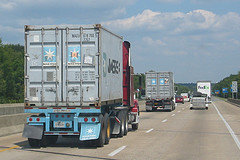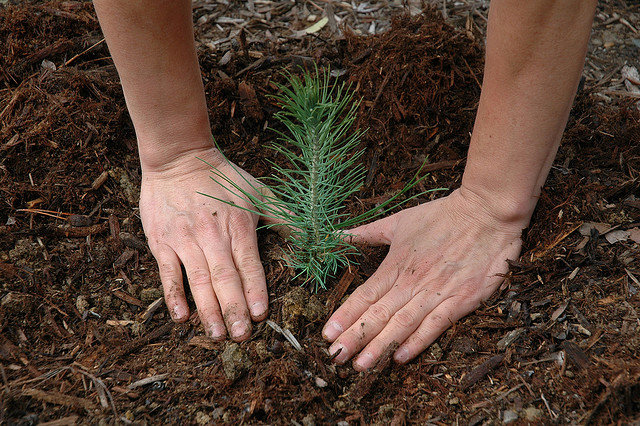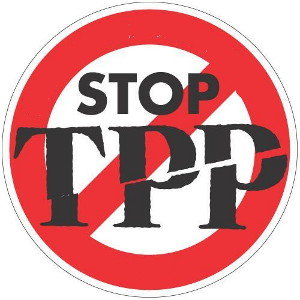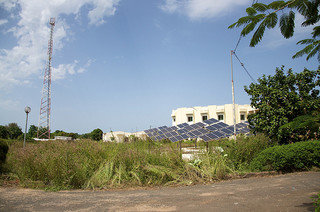Fixing Food and Farming with a True-Cost Economy
by Brent Blackwelder
 Pending farm legislation in Congress could eliminate food stamps ($80 billion worth of support per year) for families in need, while increasing subsidies for very large farm operations. Programs to promote stewardship of the land through soil and water conservation could also face dramatic cuts.
Pending farm legislation in Congress could eliminate food stamps ($80 billion worth of support per year) for families in need, while increasing subsidies for very large farm operations. Programs to promote stewardship of the land through soil and water conservation could also face dramatic cuts.
You might have hoped that subsidies to super-sized farms would instead have been on the chopping block. You might also have hoped that stewardship of the land through soil conservation programs would have been boosted on food security grounds. Well, your hopes are in the process of being shredded in the halls of Congress.
But maybe there’s still room for hope. A paradigm shift is underway in our nation’s approach to food and agriculture. Movements are gaining steam that support organic food, local food, farmers markets, local food security, and food safety. On the food safety front, outrage is growing over the inability to inspect more than two percent of imported food, especially in the wake of food scandals abroad (e.g., melamine in pet food, pork treated with chemicals to taste like beef, deaths of children from school lunches prepared in used pesticide containers).
For these movements to work, they’ve got to influence policies at home and abroad. Economic and agricultural policies that favor financial profits over healthy food systems won’t work. U.S. farm programs are failing to address serious food supply issues. At the same time, many nations are ceding control over their best farmland to outside interests, as if the notion of local food security had no meaning. Such maneuvers could increase the risk of famine and starvation in the event of droughts, floods, or other disruptions in food supply.
Millions of acres of prime farmland around the world have already been bought up by countries such as Saudi Arabia and China, as well as by corporations. A large Chinese agribusiness pork producer has just put up over $4 billion to buy the Smithfield company located in Virginia. Tens of millions of acres of prime farmland in Africa are now owned by countries and corporations that have little interest in local people, many of whom are evicted from their ancestral lands.
Along with these land grabs, population growth is putting pressure on farms to produce even more, especially as the gains in yield from the Green Revolution wind down. At dinner tonight there will be 219,000 new mouths to feed. How is civilization going to meet the challenges posed by a growing global population when the planet’s productive soil is being lost and contaminated?
Authors like Lester Brown have called attention to the deterioration of productive farmland throughout the world. Although there are examples of land restoration efforts such as in part of China’s Loess Plateau, these do not offset ongoing declines. In the United States the annual erosion loss is 1.7 billion tons of topsoil.
Managing these weighty issues in the food system requires a complete economic overhaul. In a global, true-cost, steady state economy, the agriculture and food goals for each nation would be to rebuild foodsheds with greater local sustainability and secure resilient food systems.
Each nation would maintain an agricultural base sufficient to feed its people, including backup plans in case of crop failure or natural disasters. Such resilience is needed because climate destabilization has dramatically increased the number of weather disasters. From 1900 until 1970 the number of global disasters remained below 100 per year. Now the average is over 300 with several years spiking to over 500. These disasters pose serious threats to food production and stress the emergency response resources of governments. In addition, the increased frequency of these disasters is making rescue operations and aid from other nations less common.
A pioneering farm bill for a true-cost economy would begin redesigning the food system, based on principles of ecology, justice, and health. Such a system would be fair sustainable, and humane. The federal government would be encouraging, not impeding, local and community agriculture that would employ many more people on ecologically sound farms.
Abusive soil practices would become a thing of the past as the connections between soil fertility and food security become more obvious. Degradation of soil would be seen as a direct threat to long-term national security and well-being.
Interest in genetically engineered food and organisms would wane as attempts by Monsanto and other food/chemical giants to control the world’s food supply are beaten back by the power of expanding local and community food organizations.
For more information on how U.S. farm legislation could be changed, check out the great work being done by the National Farm Family Coalition. For descriptions of many exciting and challenging food initiatives, read Philip Ackerman-Leist’s book Rebuilding the Foodshed: How to Create Local, Sustainable, and Secure Food Systems.







Yes, we do need more local food economies distributed around the world, but converting the US ag economy to this is not feasible, nor needed. The US has demonstrated that no matter how much food we produce, it is not going to find the hungry mouths of the world.
The US can move toward a more resilient industrial ag system to provide food, feed, fiber and fuels. Agriculture was never always about food, and it won’t be in the future. GMOs are tools like other genes, but unfortunately we have little stewardship sense on keeping these valuable. The US Farm Bill cannot support the whole of conservation in the era of sustainability. It requires a broader integration with markets and the economy.
Ecosystem services will be part of a resilient agro-economy, but most have not envisioned what a transaction would look like. Economists and ecologist think differently and the solution resides within the wisdom of both as described in EcoCommerce 101: Adding an ecological dimension to the economy.
Farmers were not and are not the first and best environmentalists, but we can be the first and best ecocommercists.
As usual, a brilliant synopsis. The common denominator in every point is capitalism. This antiquated economic system has obviously run its course. If the human population can see the advantage of a steady state economy, perhaps we can jettison our leaders and the greed they promote. Or, we can continue to make it easier for megacorporations and burden the less fortunate.